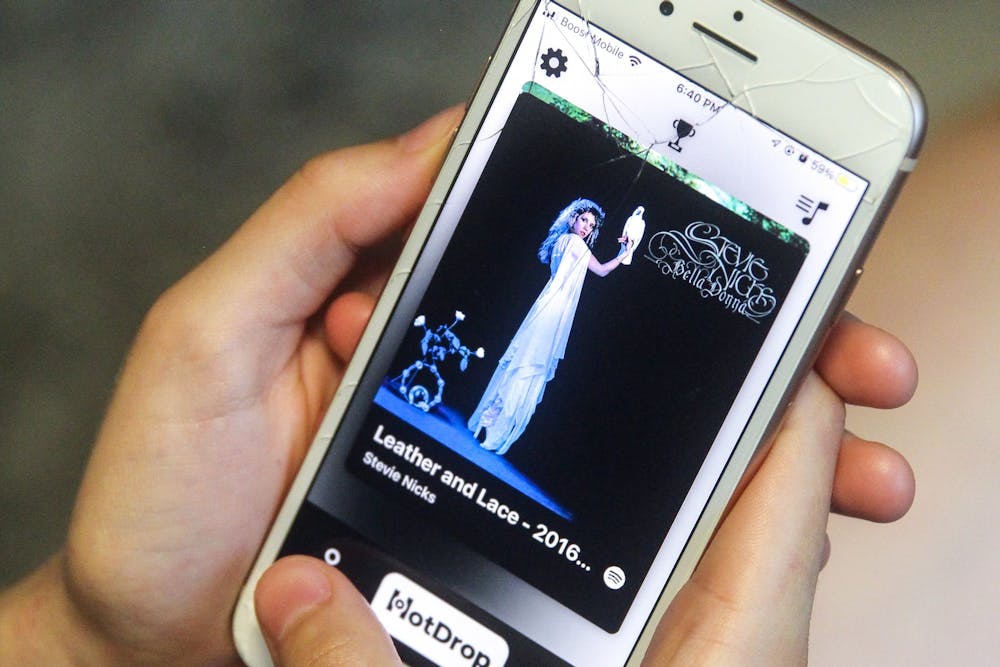IU senior finance majors Max Goldberg and Steven Segel launched their own app, HotDrop, in September 2021 to help people discover new music and artists. This venture has recently led them to being accepted into the Techstars startup accelerator program with a $3 million evaluation.
[Related: IU students launch swipe-based music app HotDrop]
Goldberg and Segel are taking this fall semester off to participate in a 13-week program from Sept. 19 to Dec. 15 in Portland, Maine where they will have access to mentorship and additional funding for their startup. Segel said the choice to take time off school for this opportunity was a no-brainer.
“I was completely confident in the decision,” Segel said. “We’ve always been seeking the opportunity to go full time on this and devote every hour of the day to HotDrop.”
The Techstars application process is extensive. Goldberg and Segel said they began the process at the end of May 2022 after receiving an email from Lars Perkins, the managing director of The Roux Institute Techstars Accelerator. After four rounds of interviews and pitching their product, they were accepted to the program in August.
Techstars looked for companies that were building a product that solves problems and revolutionizes how people live and work. The program helps startups to focus on their operations while connecting them to a worldwide network that helps entrepreneurs succeed, according to a Techstars press release.
Within a month of its release last September, HotDrop had 25,000 users and two million songs discovered. Goldberg said that after HotDrop’s release, they received hundreds of emails with feedback from artists.
“We realized that the demand here is to actually create a two-sided marketplace or community where artists can actually upload their music to be discovered by this vibrant community we built,” Goldberg said.
Since their leave of absence from school, Goldberg and Segel have worked to change the app’s original structure and build something new, called HotDrop Studio. HotDrop Studio allows artists to see how people interact with their music through analytics, without having to pay studio production costs.
“Our vision and the mission behind HotDrop studio is we want to enable indie artists to have the same opportunities that label signed artists have on indie budgets,” Segel said.
While HotDrop was in its ideation stage, Travis Brown, the Luddy School of Informatics, executive dean, reached out and told Goldberg and Segel to check out the Shoemaker Innovation Center at Luddy. The “shoebox” helps students take ideas and turn them into innovations, by providing mentorship, resources, and scholarship opportunities, according to its website.
[Related: McRobbie officially dedicates Luddy Hall]
Goldberg and Segel attribute much of their success to Indiana’s entrepreneurial opportunities, from being members of the shoebox at Luddy to having investment from IU ventures.
Goldberg and Segel also recognize that having a program as strong as Jacob’s School of Music makes Hotrop’s new studio even more relevant to IU. They said they are targeting outreach and offering HotDrop’s free services to Jacob’s students.
“Our mission is about helping independent artists and leveling the playing field, because they really don’t have a fighting chance without promotional and data services like HotDrop,” Goldberg said.
Goldberg and Segel both hope the success of their app will allow them to keep HotDrop as their full-time career going forward. Their goal is to allow people to hear new artists who aren’t available on other streaming apps and to create success stories for new artists, they said.
“If we can blow up one artist who was a nobody before HotDrop, this business is going to be enormous,” Goldberg said.




